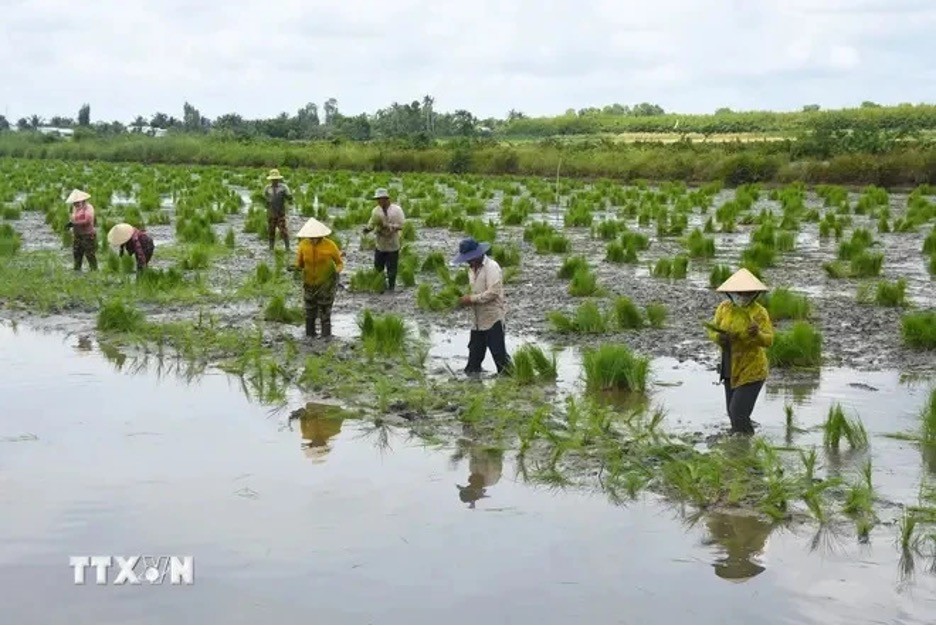
Circular economy seen as lifeline for Mekong Delta's agriculture
Latest
 |
| Ca Mau farmers begin planting rice on shrimp farming land. (Photo: VNA) |
With climate change, rising sea level posing significant threats, experts are advocating for a shift toward a circular economic model in the Mekong Delta, Vietnam's agricultural powerhouse.
The Institute for Circular Economy Development believes this approach holds immense potential for the region's vast agricultural sector.
The Mekong Delta's large-scale production offers a unique opportunity to minimise input resources, recycle waste and wastewater, and find new uses for by-products, said its experts.
The environmental benefits are particularly compelling. Rice production alone generates a staggering 20 million tonnes of straw, 4 million tonnes of rice husks, and 2 million tonnes of bran annually. "Effectively utilising these by-products is crucial for a sustainable rice industry”, they said.
According to the Ministry of Agriculture and Rural Development's Department of Crop Production, up to 70% of rice straw is currently burned or buried in fields, leading to air and soil pollution and release of harmful greenhouse gases. The circular economy model offers a solution: collecting straw for mushroom cultivation, cattle feed, organic fertiliser production, bioplastics, and even urban agriculture.
Livestock farming also presents a challenge. The Mekong Delta generates a hefty 2.78 million tonnes of animal waste annually, primarily from pig, poultry and cattle. While some of this waste is used for biogas generation, composting or directly used as fertiliser, significant opportunities remain for more sustainable practices.
The Mekong Delta contributes 31.37% to the country's GDP, with approximately 50% of rice production, 95% of rice exports, 65% of aquaculture, 60% of fish exports, and nearly 70% of various fruit production.

























